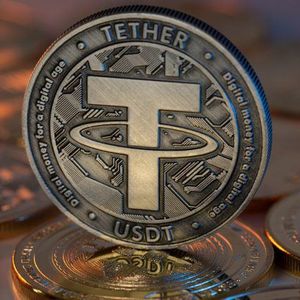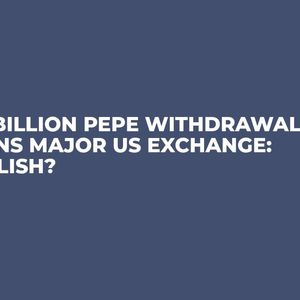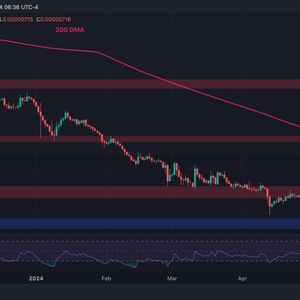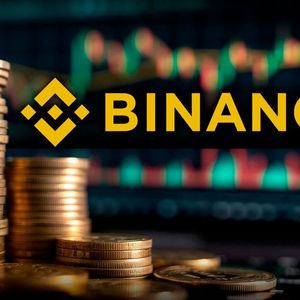

ARKB: Low Cost Way To Own Bitcoin
Summary The SEC's approval of spot Bitcoin ETFs was a watershed moment for American investors looking at cryptocurrency investments. The ARK 21Shares Bitcoin ETF is one of the options to consider for long-term Bitcoin exposure, as it has a good combination of low fees and liquidity. Bitcoin prices may rally in 2024 due to an upcoming 'halving' when Bitcoins become more scarce. For crypto enthusiasts, the SEC's approval of spot Bitcoin ETFs on January 10th was a watershed moment. Prior to the SEC's approval, American investors could only get Bitcoin exposure via holding Bitcoins directly in their own crypto wallets, OTC closed-end funds like the Grayscale Bitcoin Trust ( GBTC , now converted into an ETF), companies that held bitcoin in their treasury like MicroStrategy Inc. ( MSTR ), or futures-based Bitcoin ETFs like the ProShare Bitcoin Strategy ETF ( BITO ). Spot Bitcoin products like the ARK 21Shares Bitcoin ETF (ARKB) would help ameliorate the downsides from each of the aforementioned strategies. However, with the approval of spot Bitcoin ETFs, a new question arises - which of the half dozen spot Bitcoin ETFs is likely the best bet, if one wanted to hold Bitcoins for the long-term? This article looks at the pros and cons of investing in Bitcoins via the various alternatives, using the ARKB ETF as a comparison tool. Fund Overview The ARK 21Shares Bitcoin ETF was launched to coincide with the SEC approval of spot Bitcoin ETFs. It seeks to track the performance of Bitcoin, as measured by the performance of the CME CF Bitcoin Reference Rate, adjusted for the fund’s expenses and other liabilities. For the first six months of its existence or up to $1 billion in assets, the ARKB will waive its 0.21% management fee (Figure 1). Figure 1 - ARKB fees waived until the fund reaches $1 billion or 6 months (ark-funds.com) Why Bitcoin The first question an investor should ask when considering whether to buy the ARKB ETF is whether they want exposure to Bitcoin in the first place? Bitcoin is the first decentralized digital currency that was created in 2009 and designed to act as a form of payment outside the control of any one person, group, or entity. By design, there will only ever be 21 million Bitcoins in existence, so similar to the scarcity argument for owning gold, owning Bitcoin can be thought of as a hedge against the debasement of fiat currencies through money printing. However, while the number of Bitcoins may be limited to 21 million, the number of cryptocurrencies are potentially unlimited . For example, on coinmarketcap.com, we can see over there are over 8,000 cryptocurrencies listed, with more added all the time (Figure 2) Figure 2 - There are over 8,000 cryptocurrencies (coinmarketcap.com) Furthermore, while Bitcoin is one of the dominant cryptocurrencies today, there is no guarantees it will remain so, as Bitcoin's infrastructure is energy intensive to maintain because Bitcoins must be "mined" (complex mathematical questions solved) and Bitcoin transactions require proof-of-work ("POW") consensus before being added to the blockchain. Readers interested in learning more about the history of Bitcoin and whether they should invest in Bitcoin can consult one of the many investment websites on the internet. For me personally, I have a small allocation to Bitcoin, more of a 'just in case' investment. I seriously doubt Bitcoin can trade to $1 million / BTC as many pundits claim , but there is also the risk of potentially missing out if it does. Upcoming Halving Could Lead To Bitcoin Rally One possible reason why Bitcoin might rally in the coming months is because of the upcoming 'halving' . Bitcoin halving is the term used to denote when the reward for Bitcoin mining decreases. Original Bitcoin miners were paid 50 BTC per block when Bitcoin was first established in 2009. However, the reward rate is halved for every 210,000 blocks mined - which occurs roughly every four years. Historically, Bitcoin prices tend to rally significantly around halving events, as their scarcity increases (Figure 3). Figure 3 - Next halving is scheduled for 2024 (techopedia.com) Personal Wallet Or Fund? If one has decided to invest in Bitcoin, the next question to ask is whether one should hold custody of the Bitcoins in their own wallet or invest in an investment fund holding Bitcoins. There are many advantages to owning Bitcoin via a fund vs. direct ownership. First, owning a fund avoids the hassle of opening up a separate crypto trading account with potentially sketchy exchanges like FTX. Investors who had crypto investments held on FTX have seen their assets frozen as the FTX bankruptcy case slowly works through the court system. Furthermore, since Bitcoin is decentralized, investors who own Bitcoin directly are always at risk of losing their investments if they are personally hacked, or if they lose their passwords (unlike bank accounts, there is no way to reset passwords on crypto wallets). Even crypto exchanges themselves can be hacked and cryptocurrencies stolen, although those occurrences have decreased in frequency in recent years as exchange security has improved. Personally, I enjoy the comfort of knowing my Bitcoins are managed and custodied by a reputable firm, so I am more than happy to hold them in an investment fund. Historically, I have held the GBTC, although with the introduction of spot ETFs, I am looking to switch out of GBTC due to their high fees. Which ETF To Choose? With the approval of spot Bitcoin ETFs, investors now have a plethora of investment options. The question is, which ETF should they choose? For the most part, the available ETFs are all very similar, as they only hold Bitcoins held in a secure wallet (Figure 4). With few exceptions, most of the ETFs are also custodied with Coinbase. Figure 4 - Comparison of spot Bitcoin ETFs (Bloomberg) The key difference then comes down to their fees. From Figure 4 above, we can see that GBTC is the most expensive, charging 1.5% management fees. While that fee may have been justified when GBTC was the only game in town, it is simply untenable when peers all have management fees ranging from 0.19% to 0.39%. Furthermore, for many of these funds, in order to attract investor attention and hopefully become one of the 'go-to' Bitcoin investment vehicles, the investment managers have chosen to waive their fees for a period of time or until the fund reaches a certain size. For ARKB, its management fees are waived for 6 months or until the fund reaches $1 billion in AUM. Since the ARKB ETF now has $700 million in assets, it will probably not be long before ARKB will start charging management fees. Looking beyond the introductory period, ARKB's management fee rate of 0.21% also ranks as one of the lowest, although the Franklin Bitcoin ETF ( EZBC ) has the lowest absolute management fee rate of 0.19%. How Close Do They Trade To NAV? Beyond their fees, the next consideration between the different ETFs is how close do they trade relative to their NAVs? Investors do not want to buy $1 worth of assets by paying $1.05. For ARKB, its premium/discount to NAV has ranged from -0.5% to +0.5%, although the valuation has improved in recent days (Figure 5). Figure 5 - ARKB premium/discount to NAV (ark-funds.com) In general, the larger and more liquid the fund, the closer it trades to NAV. Currently, ARKB is the 4th largest spot Bitcoin ETF, following GBTC, the iShares Bitcoin Trust ETF ( IBIT ), and the Fidelity Wise Origin Bitcoin Fund ETF ( FBTC ) (Figure 6). Figure 6 - Spot Bitcoin ETF AUM and Liquidity (Seeking Alpha) Its liquidity is also middle-of the pack with average daily volume of $95 million. Overall, ARKB does appear to have a nice balance between liquidity (4th largest fund) and fees (3rd cheapest at 0.21% after introductory fee period ends). Conclusion The Ark 21Shares Bitcoin ETF is a newly launched spot Bitcoin ETF managed by ARK Investments. ARKB's management fees are waived for 6 months or until the fund reaches $1 billion in AUM. However, with $700 million in AUM after a month of operation, the ARKB ETF may start charging management fees soon. Looking beyond the introductory fee period, the ARKB does have one of the lower management fee ratios at only 0.21%, so it may be suitable for long-term holders. While paying management fees on Bitcoin holdings is non-ideal, owning an investment fund does have advantages as it may be more convenient versus opening separate crypto-trading accounts. Furthermore, Bitcoins held in an ETF are less likely to be stolen by malicious hackers. The downside is investors in spot Bitcoin ETFs will lose the anonymity that comes with holding Bitcoins in personal wallets. The outlook for Bitcoin looks bright in 2024, as a halving is expected to occur this year, which will increase Bitcoin's scarcity and may drive the price of Bitcoin higher. I personally have a small allocation to Bitcoin that are held in GBTC that I am looking to switch into cheaper ETFs like the ARKB in the coming days. I rate the ARKB a relative buy .









